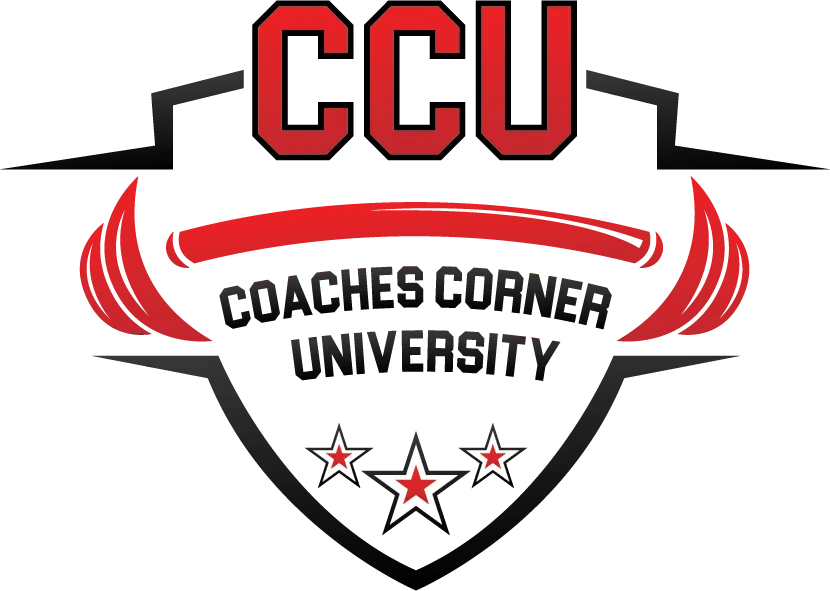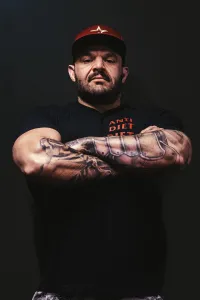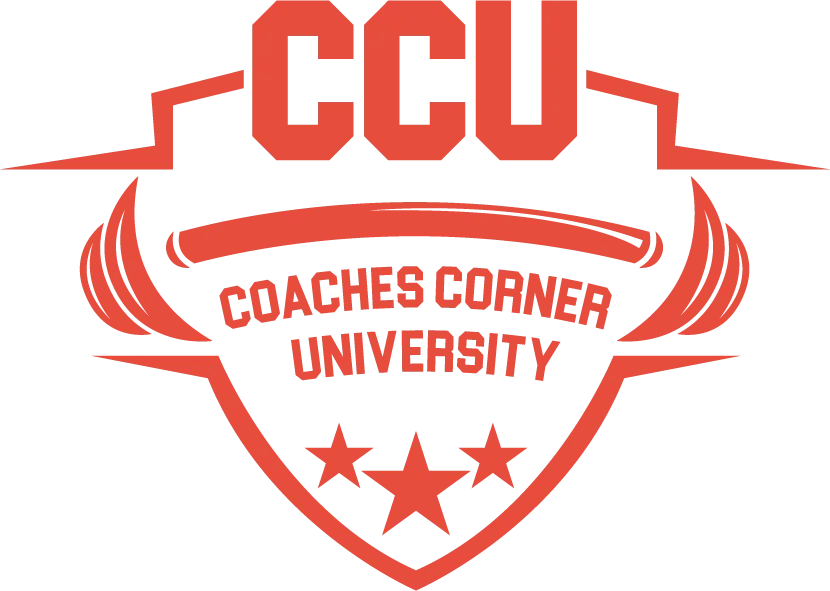Discover The Latest Blogs
Stay updated with Our Informative Blog Posts
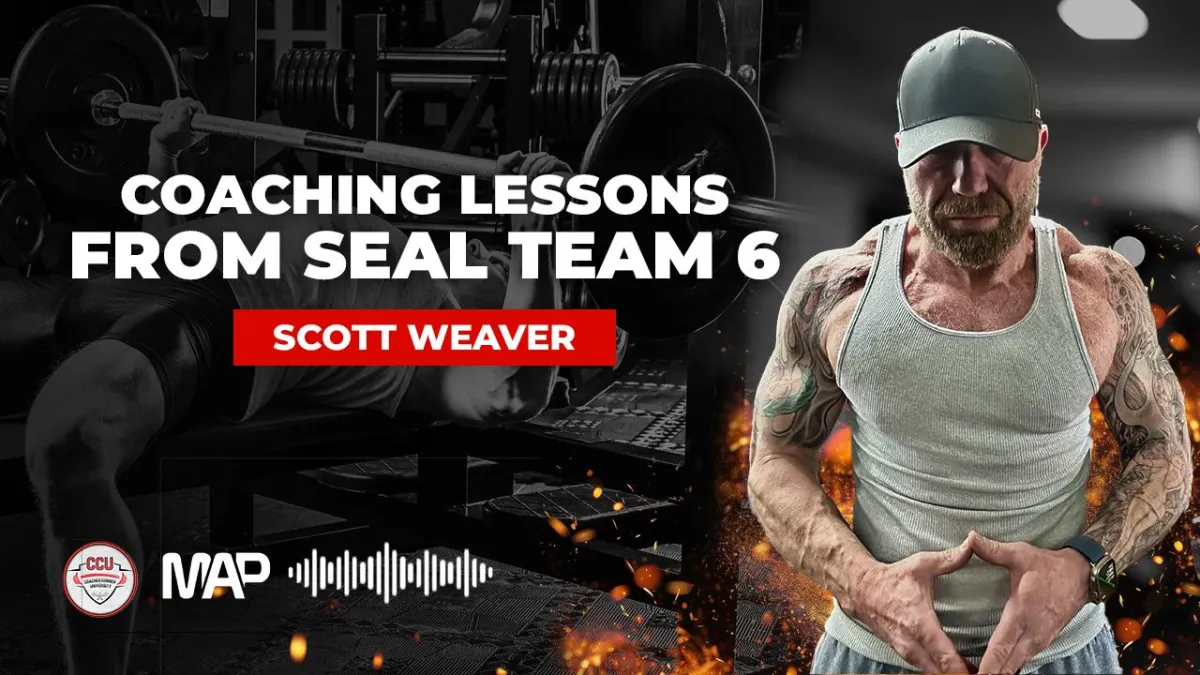
CCU Podcast - Coaching Lessons from SEAL Team 6 with Scott Weaver
Coaching Lessons from SEAL Team 6
Today, I sat down with Scott Weaver, a retired former Special Forces EOD Operator with multiple combat deployments within the SEAL Teams. High-level competitive Adaptive athlete and strongman. Master's strongman, youth and adult strength and conditioning coach.
Scott’s journey from SEAL Team 6 operator to adaptive strongman champion to youth coach represents one of the most compelling transformations in modern athletics. After losing 75% of his calf muscle in an Afghanistan explosion—with doctors declaring he'd never walk again, let alone return to special operations—Scott not only proved medical professionals wrong but went on to win the Arnold Classic four consecutive times as an adaptive athlete. His story transcends typical injury recovery narratives, offering strength and conditioning professionals a masterclass in resilience, leadership, and the psychological foundations that separate good coaches from transformational ones. The principles Scott learned through two decades of elite military service, combined with his intimate understanding of catastrophic injury recovery, provide a unique lens through which to examine coaching excellence.
10 Key Takeaways from Coaching Lessons from SEAL Team 6
Identity Evolution Is Essential for Long-Term Success
Scott's transition from bomb technician to SEAL operator to adaptive athlete to youth coach demonstrates that identity must evolve with circumstances. When his military identity was threatened by injury, he didn't cling to a past version of himself but systematically built new identities around his capabilities. For strength coaches, this principle applies both personally and in how they guide athletes through career transitions, injuries, or performance plateaus. The most resilient athletes and coaches understand that identity is fluid and must adapt to serve current realities rather than past achievements.
Controlled Adversity Creates Unbreakable Mental Fortitude
Scott's approach to training youth athletes mirrors special forces methodology: deliberately introducing manageable stress to build resilience. He creates competition between athletes, maintains stat boards, and pushes kids beyond their comfort zones while ensuring safety. This controlled adversity principle allows strength coaches to systematically develop mental toughness in athletes who haven't naturally encountered significant hardship. The key lies in calibrating stress levels appropriately—enough to promote adaptation without causing breakdown.
Leadership Requires Walking the Walk Before Talking the Talk
Scott's leadership philosophy centers on never asking anyone to do something he hasn't done or wouldn't do himself. This "product of your product" mentality extends beyond physical capabilities to encompass work ethic, dedication, and sacrifice. Strength coaches must demonstrate the behaviors they expect from athletes—showing up consistently, maintaining their own fitness standards, and exhibiting the discipline they demand. Athletes can sense authenticity immediately, and credibility built through personal example cannot be manufactured through credentials alone.
Individual Motivation Strategies Trump Universal Approaches
Scott learned that effective leadership requires understanding what motivates each individual team member. Some respond to public praise, others to private challenges, and still others to direct confrontation. This principle directly contradicts one-size-fits-all coaching methodologies. Successful strength coaches develop sophisticated motivational profiles for each athlete, understanding their psychological triggers, communication preferences, and optimal challenge levels. The investment in understanding individual psychology pays dividends in long-term athlete development and retention.
Competition Drives Performance More Than Individual Goals
Scott discovered that pitting his young athletes against each other in controlled competitions generates more motivation than individual goal-setting. His stat board system, where athletes compete for "red" scores in various categories, taps into fundamental competitive drives. Strength coaches can leverage this by creating team challenges, personal record competitions, and milestone races that make training inherently competitive while maintaining supportive team dynamics.
Brotherhood and Community Are Non-Negotiable Elements
The military concept of brotherhood translates directly to strength coaching environments. Scott emphasizes that his teams became families, with deep personal connections extending beyond training hours. This level of investment creates accountability structures that exceed professional relationships. Strength coaches who invest in building genuine community among their athletes see dramatically improved retention, effort levels, and mutual accountability that continues when the coach isn't present.
Perspective Determines Everything in Performance and Recovery
Scott's billboard message—"perspective is everything"—encapsulates perhaps the most crucial coaching principle. Whether an athlete believes they can achieve something or believes they cannot, they're correct. This psychological foundation underlies all physical training adaptations. Strength coaches must become skilled at reframing challenges, helping athletes see setbacks as setup opportunities, and maintaining optimism during difficult training phases. The coach's perspective often becomes the athlete's perspective.
Labels Become Limitations When Adopted as Identity
Scott strongly opposes athletes defining themselves by their limitations—"I have anxiety," "I have depression," or "I'm injury-prone." He views these as temporary states rather than permanent identities. Strength coaches must help athletes separate their current circumstances from their core identity, preventing temporary setbacks from becoming permanent self-concepts. This requires careful language choices and consistent messaging about human adaptability and potential.
Hardship Creates Capacity for Excellence
Scott's observation that successful special forces operators typically experienced significant childhood adversity reveals a fundamental truth about human development. While coaches cannot change their athletes' past experiences, they can create appropriately challenging training environments that develop similar resilience. The goal is manufacturing enough difficulty to build character without creating trauma—a delicate balance requiring sophisticated judgment and individual assessment.
Standing Up for Your People Builds Unshakeable Loyalty
Scott identifies protecting his team members from unreasonable pressure from above as a crucial leadership behavior. This principle translates to strength coaches advocating for their athletes with administrators, parents, or other stakeholders who may not understand training methodology or individual athlete needs. When athletes know their coach will defend them and filter external pressures, they reciprocate with increased trust, effort, and loyalty that extends far beyond the training environment.
The military's systematic approach to developing mental toughness, combined with Scott's intimate understanding of overcoming seemingly insurmountable obstacles, offers strength and conditioning professionals a comprehensive framework for athlete development that extends far beyond physical adaptation. Most importantly, Scott's story demonstrates that the greatest victories often emerge from the deepest defeats—a lesson every coach must understand to guide their athletes through the inevitable challenges that define authentic growth.
Find Scott
IG - @thescotweeves
Email - [email protected]
Find the podcast:
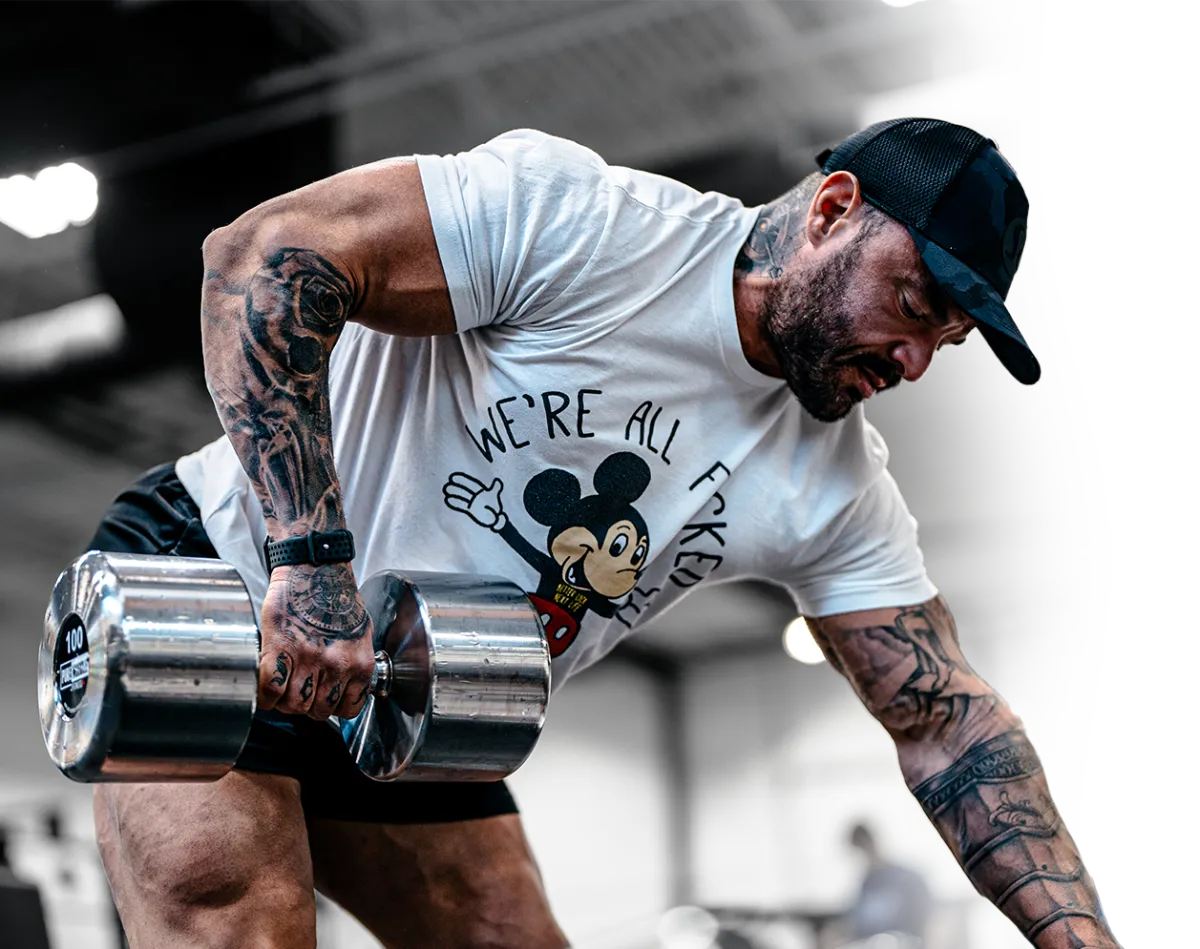
Coaches Corner PhD
